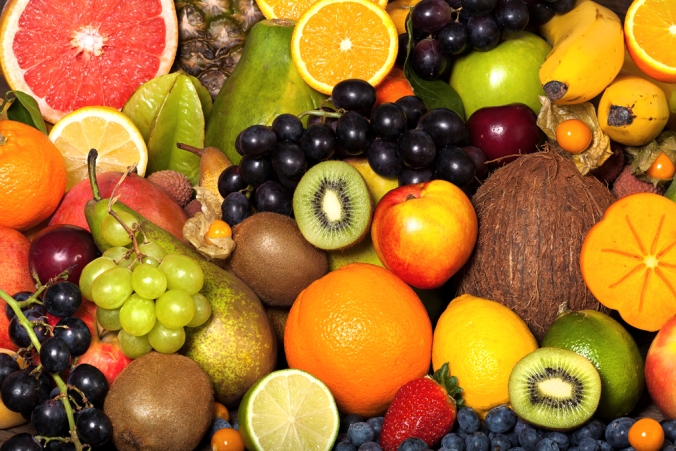It’s all about balance – an often-used expression but it’s so appropriate when we’re talking about diet and lifestyle. The body likes to be in a state of equilibrium, which is why it has so many in-built systems to keep it this way.
However, we don’t always look after our bodies as well as we should, and we can upset the balance quite easily.
Clinical nutritionist, Suzie Sawyer, talks about how to better balance both your diet and lifestyle and have your best year yet!
Feast don’t fad
Well, maybe not a total blowout! But the point here is to avoid fad diets, especially ones that advocate strict calorie restriction. We know the body likes to be balanced and if it thinks it’s going to starve it will slow metabolism down to preserve energy stores.
It is true that you will lose weight initially but it’s not sustainable to live feeling permanently hungry. Research suggests weight goes back on once ‘normal’ eating is resumed, and sometimes even more!
If you’re still struggling to shift those excess pounds from Christmas, then key advice is to be mindful of portion sizes. Stick to three balanced meals a day and avoid snacking, if possible, in-between. This ensures the body can enter the post-absorptive phase of digestion, take in nutrients and avoid insulin spikes which ultimately lead to fat being deposited.
Keep protein levels high at every meal, whether this is from fish, meat, poultry, eggs, soya, dairy, beans or nuts. Contrary to popular belief, it’s protein that keeps you feeling fuller for longer, not carbs. Protein keeps blood sugar levels balanced so energy will also be sustained.
Think about the quantities on your plate too; if it’s piled high, it’s too much. The protein source should be about the size of your outstretched palm (think about a chicken breast) and carbohydrate no bigger than a fist. And then fill the rest of your plate with nutrient-rich vegetables. Keep the rules simple: try to cook ‘from scratch’ (using frozen fruit and veg is fine) and banish nutrient-poor cakes, biscuits and pastries as much as possible.
Balance your mind
If you’re rushing around in a constant state of stress then it’s going to take its toll sooner or later. The body has amazing powers of adaptation so many people continue living their life this way for years. However, at some point the body loses tolerance and you can fall into what’s called adrenal exhaustion. This is when the adrenal glands secreting our stress hormones, such as cortisol, can’t take any more.
Clearly, it’s difficult to avoid all stress in your life – we all work and play hard. However, be strict with yourself. Even taking 20-minutes out of every day with a calming app can make a huge difference. You’ll feel refreshed afterwards and you’ll sleep better at night.
It’s also good to put some mental boundaries in place too. Instead of going to bed with all your worries on top of you, write them down before bedtime and visualise a block. Tell yourself that it is tomorrow’s issue, not for worrying about right now. If you need help with better balancing your mind then, cognitive behavioural therapy (CBT) or neuro linguistic programming (NLP) are very effective.
Balance your lifestyle
Once you feel more balanced in your thought processes, then you’ll feel better equipped to tackle any issues in your life that need resolving and might be sending you off balance.
The human body evolved to be active and it doesn’t like being sedentary. Blood flow to the brain is so much better too when you’re active, not to mention the feel-good endorphins that are released, giving you an extra boost. Just a brisk walk around the block every day will help. Find an activity you enjoy and are happy to do several times a week – you are much more likely to stay active if you’re doing something you love.
If you work long hours, or there’s lots of stress in your home life, you need to be able to take yourself out of this at regular intervals. Whether that’s learning a new skill, reading a book, going for a walk, listening to a Ted talk or joining a networking group, there’s no end of available options. Plus, try to take regular holidays, even for short breaks. Whilst you might not necessarily be feeling the negative effects of long-term stress right now, managing this on a daily basis will put you in the best position to deal with it when it comes along.
So, resolve to be better balanced in all areas of your life in 2020!
FOR MORE GREAT DIET AND LIFESTYLE ADVICE:
Sign up to receive our blog and get a weekly dose of the latest nutrition, health and wellness advice direct to your inbox.
Follow us on Twitter @feelaliveuk for nutrition, lifestyle and well-being tips.
Visit us at www.feelaliveuk.com for the latest offers and exclusive Alive! content.
Follow and Chat with Suzie on Twitter @nutritionsuzie
For everything you need to know about vitamins, minerals and herbs visit our sister site Herbfacts




























